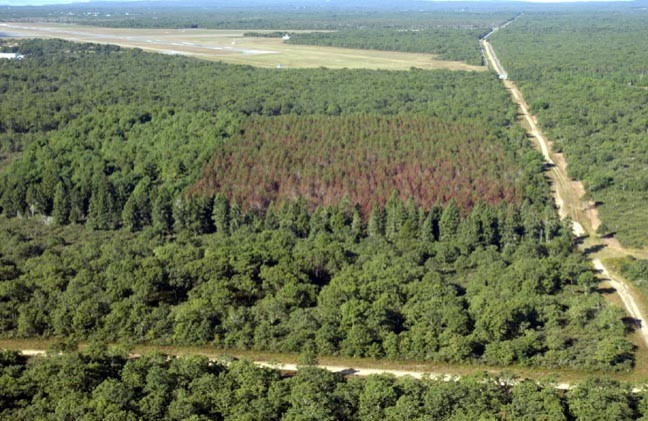Scientists Develop 'Super' Yeast to Turn Pine Trees into Ethanol for Biofuels [VIDEO]

The biofuels industry could get a big boost after scientists in Georgia revealed Thursday a certain type of yeast that can efficiently produce ethanol from pine trees.
University of Georgia researchers genetically engineered a strain of Saccharomyces cerevisiae, which is yeast typically used for baking and brewing beer, that can extract and ferment the cellulose from pretreated pines.
The finding, published this month in the online journal Biotechnology for Biofuels, showed strains of the super yeast, called AJP50, could produce a little more than 30 grams of ethanol per liter after 120 hours of fermentation.
That is roughly 90 percent of the yeast's theoretical yield, according to the researchers.
Gary M. Hawkins and Joy B. Doran-Peterson, the two researchers involved, said the fermentation of ethanol from pine wood could replace gasoline in the future.
That potential lies in how sustainable pine trees are. They are some of the fastest growing trees in the American South, making them a readily available and a renewable resource. The wood is also loaded with sugars that the yeast uses in the fermenting process, according to the University of Georgia in a release announcing the discovery.
As this University of Georgia video clip explains, the development means more wood can go into the fermentation to produce higher ethanol yields.
For two years, the researchers grew the yeast, altering it just enough to produce the maximum amount of ethanol as possible. Culturing the yeast in increasingly inhospitable environments, the researchers were able to form a strand that survives when placed on pine with a high biomass percentage, which would typically stress the yeast.
We're talking about using forestry residues, waste and unsalable timber, said Peterson. Alternatively, pine forests are managed for timber and paper manufacturing, so there is an existing infrastructure to handle tree-farming, harvest and transportation for processing.
The basic idea is that we're trying to get the yeast to make as much ethanol as it can, as fast as it can, while minimizing costs associated with cleaning or washing the pretreated pine. With our process, no additional clean-up steps are required before the pine is fermented, she said.
© Copyright IBTimes 2024. All rights reserved.





















